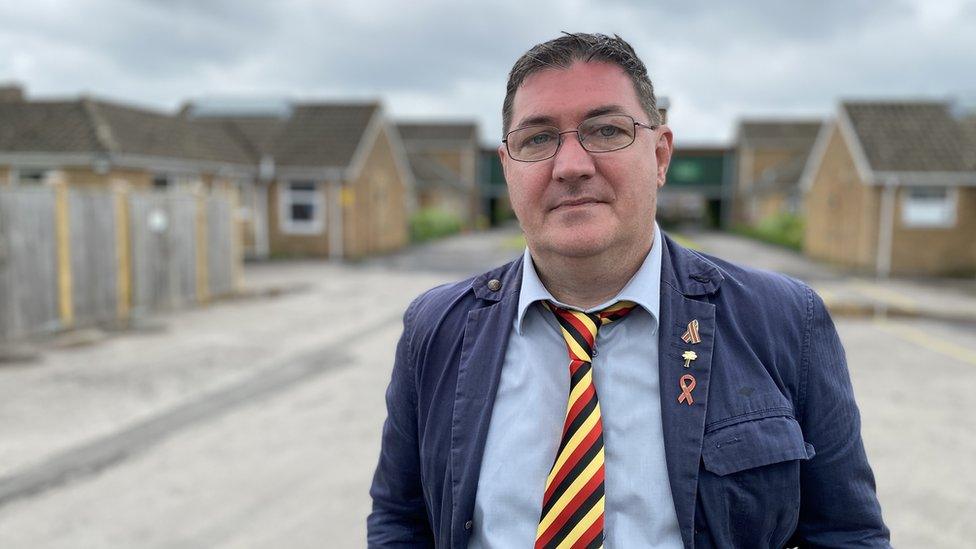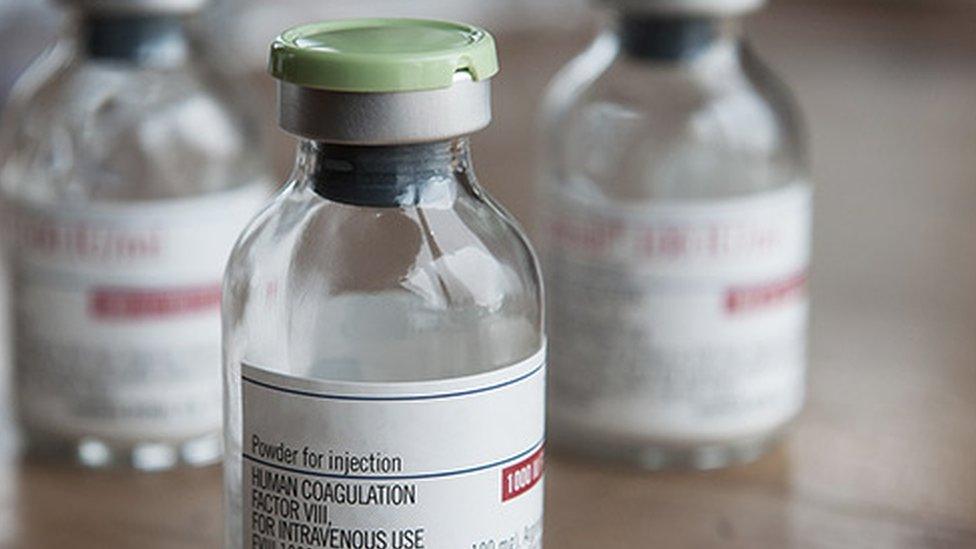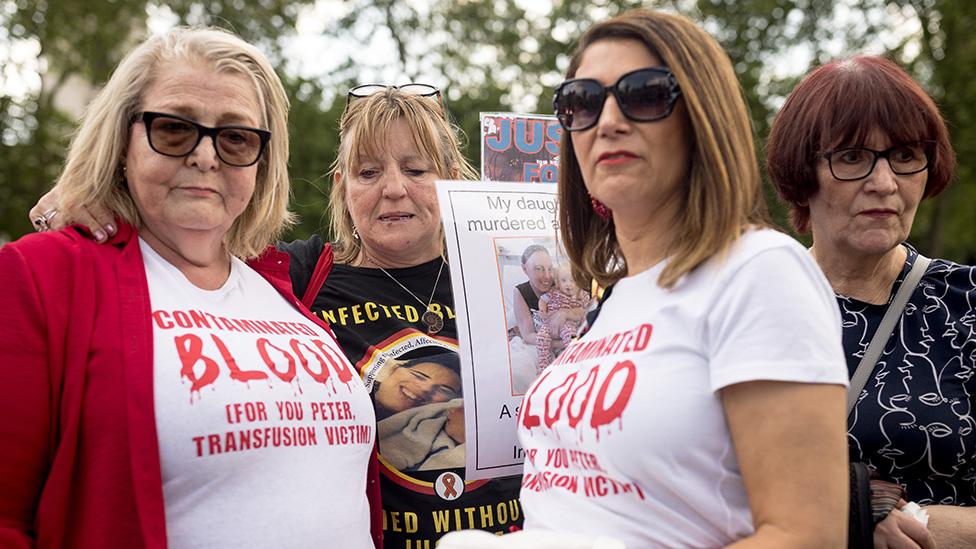Contaminated blood inquiry: Former health minister Clarke to give evidence
- Published

Lord Clarke said the decisions in one of the NHS's worst tragedies were not taken by politicians
Lord Clarke will give evidence under oath to the contaminated blood scandal inquiry later - the first senior health minister from the time to testify.
Around 3,000 people died after being given blood products containing HIV and hepatitis C in the 1970s and 1980s.
As late as November 1983 the government said it was not conclusively proven that HIV could be transmitted through blood products.
By then officials were already aware of deaths linked to the treatment.
Lord Clarke was a Conservative health minister in the early 1980s when up to 30,000 people with haemophilia and other bleeding disorders were given contaminated blood products.
It has been called the biggest treatment disaster in NHS history.
The evidence under oath of someone who served as health minister at the time marks a significant moment for survivors and their relatives, who campaigned for years to bring about the inquiry, saying the risks of the blood products were never explained and the scandal was covered up.
Victims of the scandal were given a clotting agent called Factor VIII which had been imported from the US, where it was made from plasma donated by prisoners and other groups at risk from blood-borne viruses.
By the mid-1980s, once HIV was better understood, the blood products were heat-treated to kill the viruses - but not before thousands of people were infected.
Among them were dozens of young haemophiliacs at a boarding school in Hampshire who died after contracting HIV.
Lord Clarke, who later became health secretary in 1988, is likely to face questions about what the government knew about the risks of the blood treatments and whether patients were given sufficient warning.
By November 1983, when the government said publicly there was "no conclusive evidence" HIV could be transmitted in the blood products, health officials knew of deaths linked to the treatment and assumed infection was possible.
Key decisions
In written evidence to the inquiry, Lord Clarke described the events as one of the worst tragedies in NHS history.
But he said he was not personally involved in key decisions at the time, which he said were clinical rather than political in nature.
Earlier this year, then Health Secretary Matt Hancock became the first serving cabinet minister to give evidence, telling victims he wanted "to make sure their voices are heard" and promising the government would pay compensation if the inquiry recommended it.
Led by former High Court judge Sir Brian Langstaff, the public inquiry has been examining the circumstances of the contaminated blood scandal since 2018.
Hundreds of people infected with HIV or hepatitis C and their family members have given evidence at sites across the UK.
Evidence hearings are due to continue next year with the final report expected to be published in 2022 or 2023.
- Published21 June 2021

- Published21 May 2021

